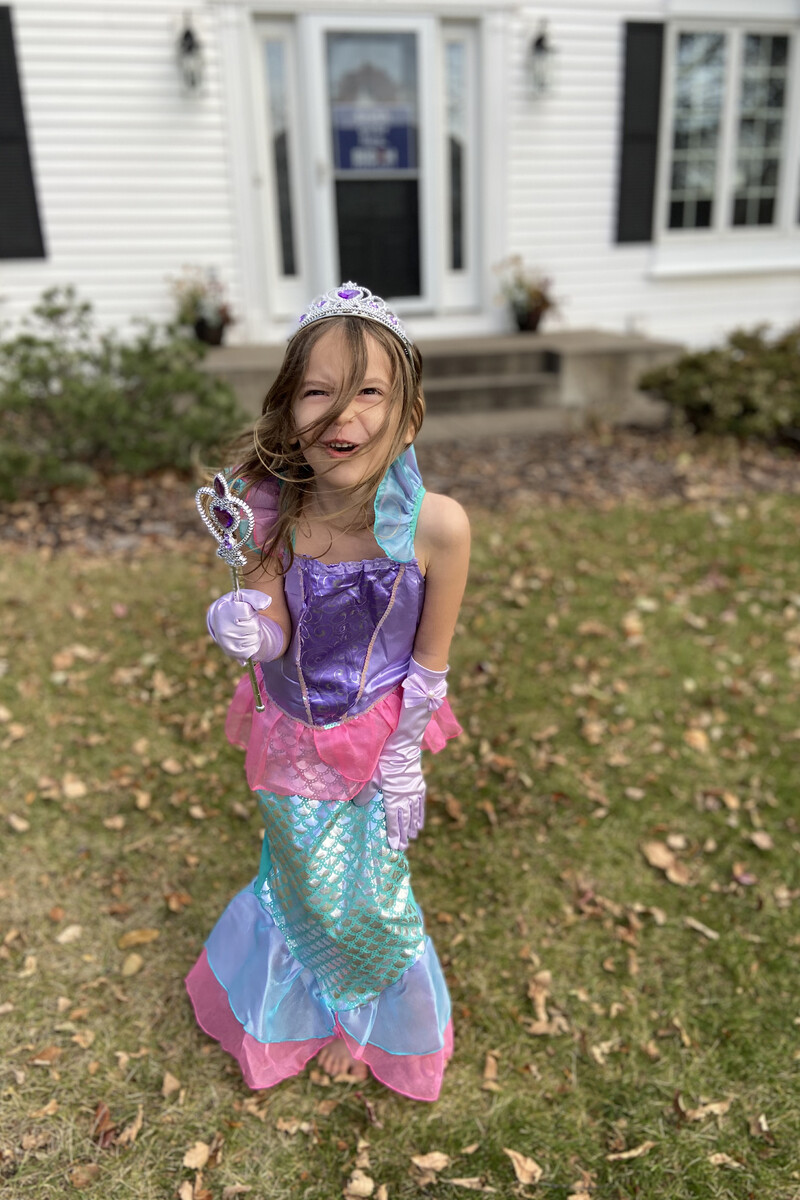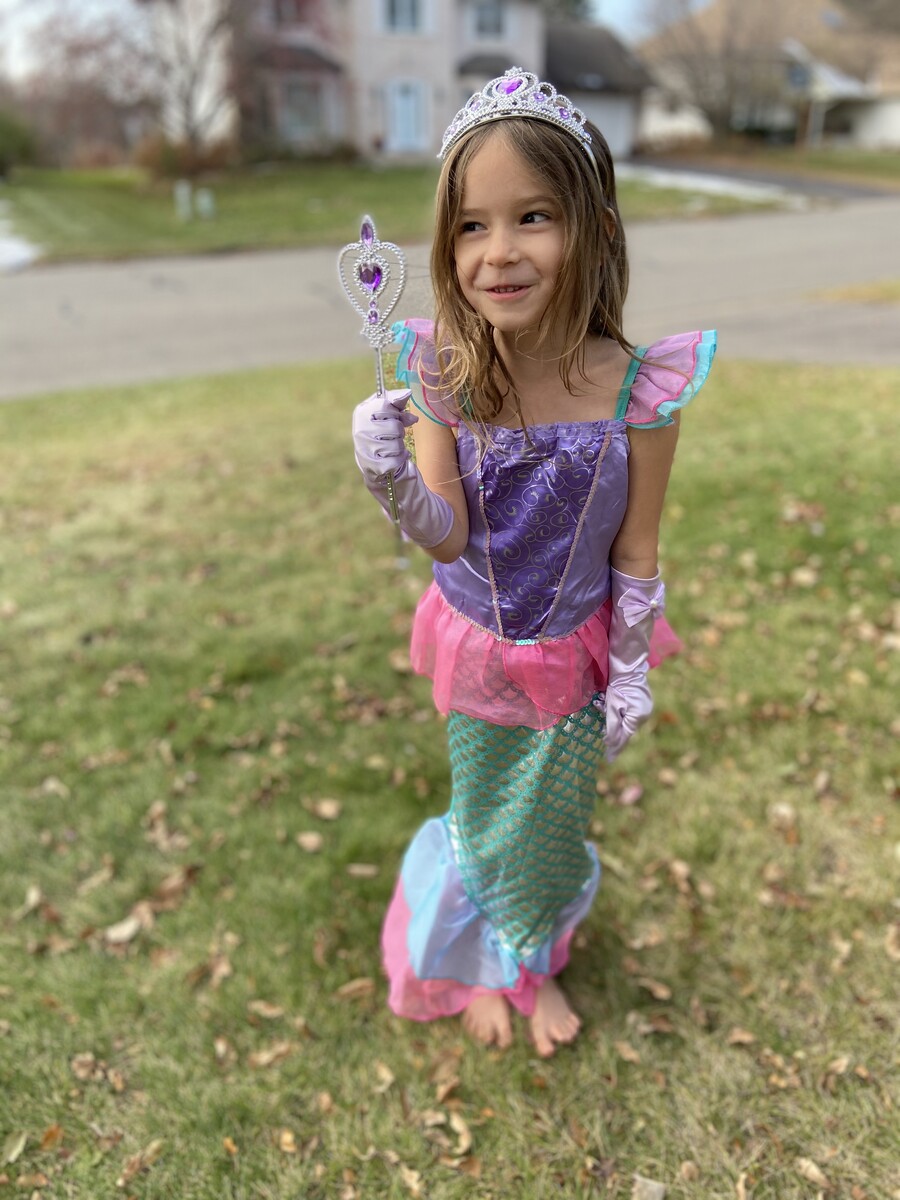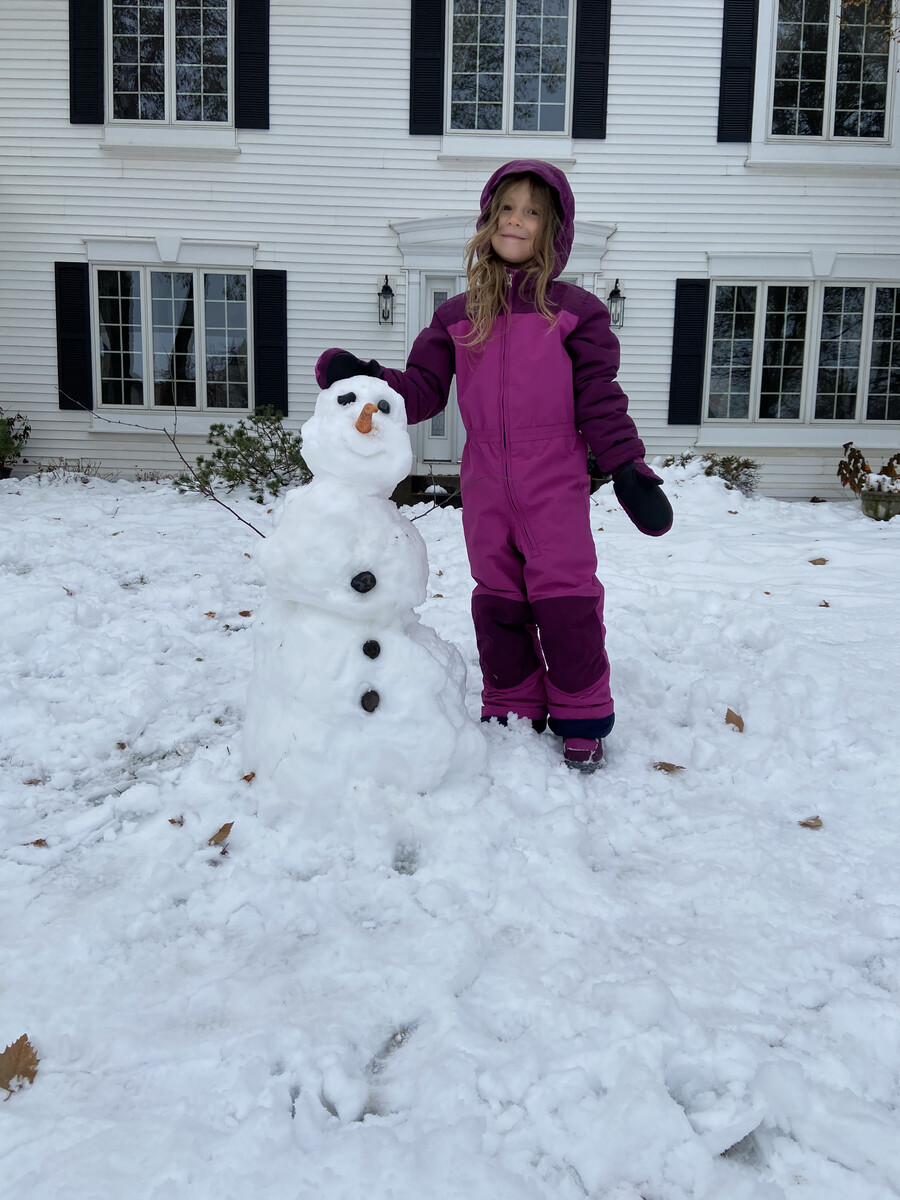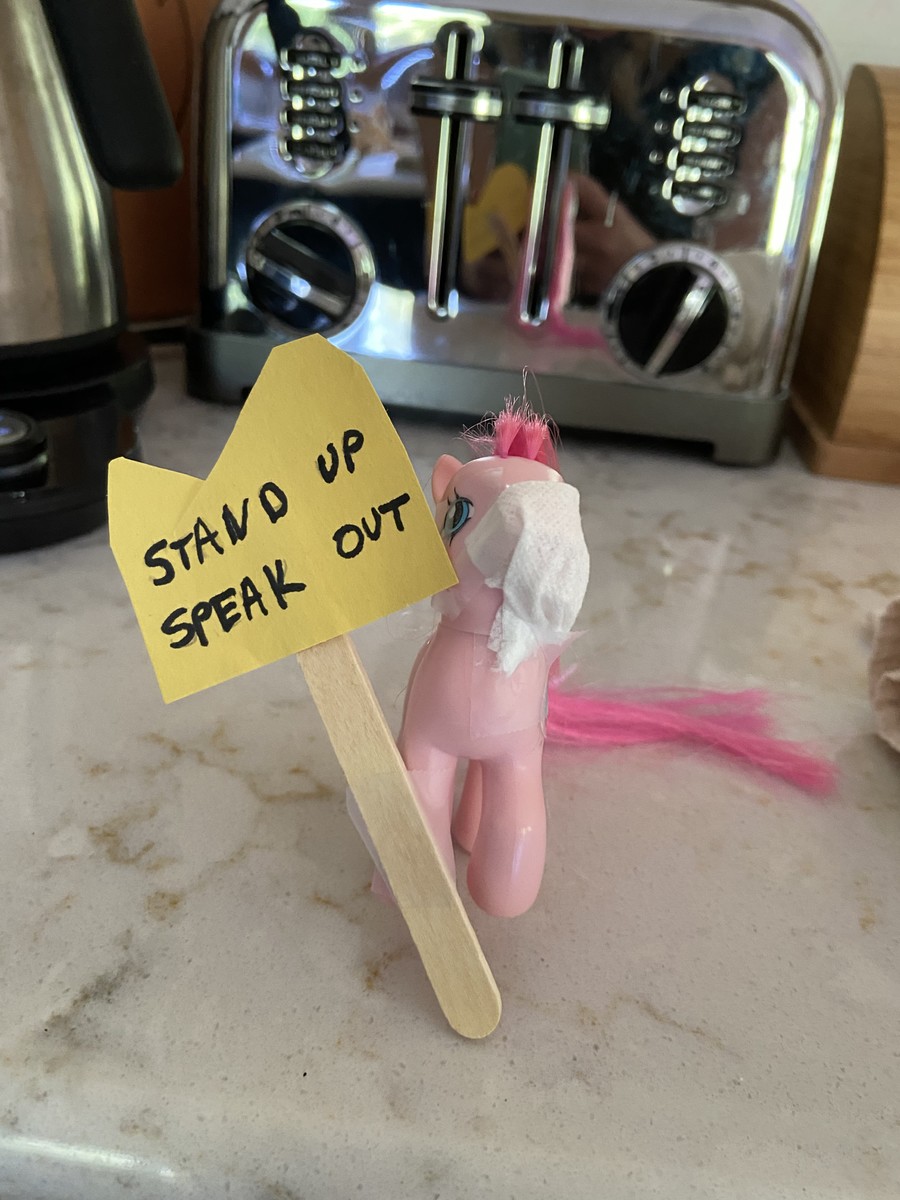Sunset







“There comes a point where we need to stop just pulling people out of the river. We need to go upstream and find out why they’re falling in.”
— Desmond Tutu


When I work in downtown Minneapolis, I drive home past a boarded up store spray painted with: “REST IN POWER, GEORGE FLOYD.” Invariably, I read it aloud to myself, alone in the car, and it gives me some hope. After the inhuman, brutal, cruel murder of Floyd in May, I was so relieved to see a national and then international series of protests. Judging by their duration, intensity, and organization, this could be what it looks like when the baton from the Civil Rights movement is taken up again to continue and escalate the fight against the inextricably intertwined institutions of United States racism and United States policing.
This is a picture of the smallest protester from a trio: Mykala, Essie, and the My Little Pony Pinkie Pie. When Mykala and Ess went to a Black Lives Matter rally in June, Essie wanted Pinkie Pie to come with and to hold a sign, so Mykala made this just wonderful little sign, a quote from Martin Luther King, Jr. for her to hold. Notice she also wears a mask.
Living through history is exhausting. Mykala is making sure Ess knows which side we’re on.
The Proper People summarize yet another expedition into a crumbling, roughly century-old building:
One reason I love this power plant so much is because there’s no reason it had to be built with all these intricate details and grandiose architecture. It’s just a power plant, after all; all it had to do was create electricity. I think that demonstrates a fundamental change of philosophy in the way we construct the world around us.
To me, the world is feeling more and more disposable. Everything is created as cheaply as possible, and it is simply a means to an end. But, when Port Richmond station was built, the builders thought they were constructing something that would serve future generations for centuries, and when we’re creating something permanent, it’s only natural for us to want to inject art and creativity and craftmanship into it. It’s part of what makes us human — and that’s what lacking from so much of what we build today.
↓ More